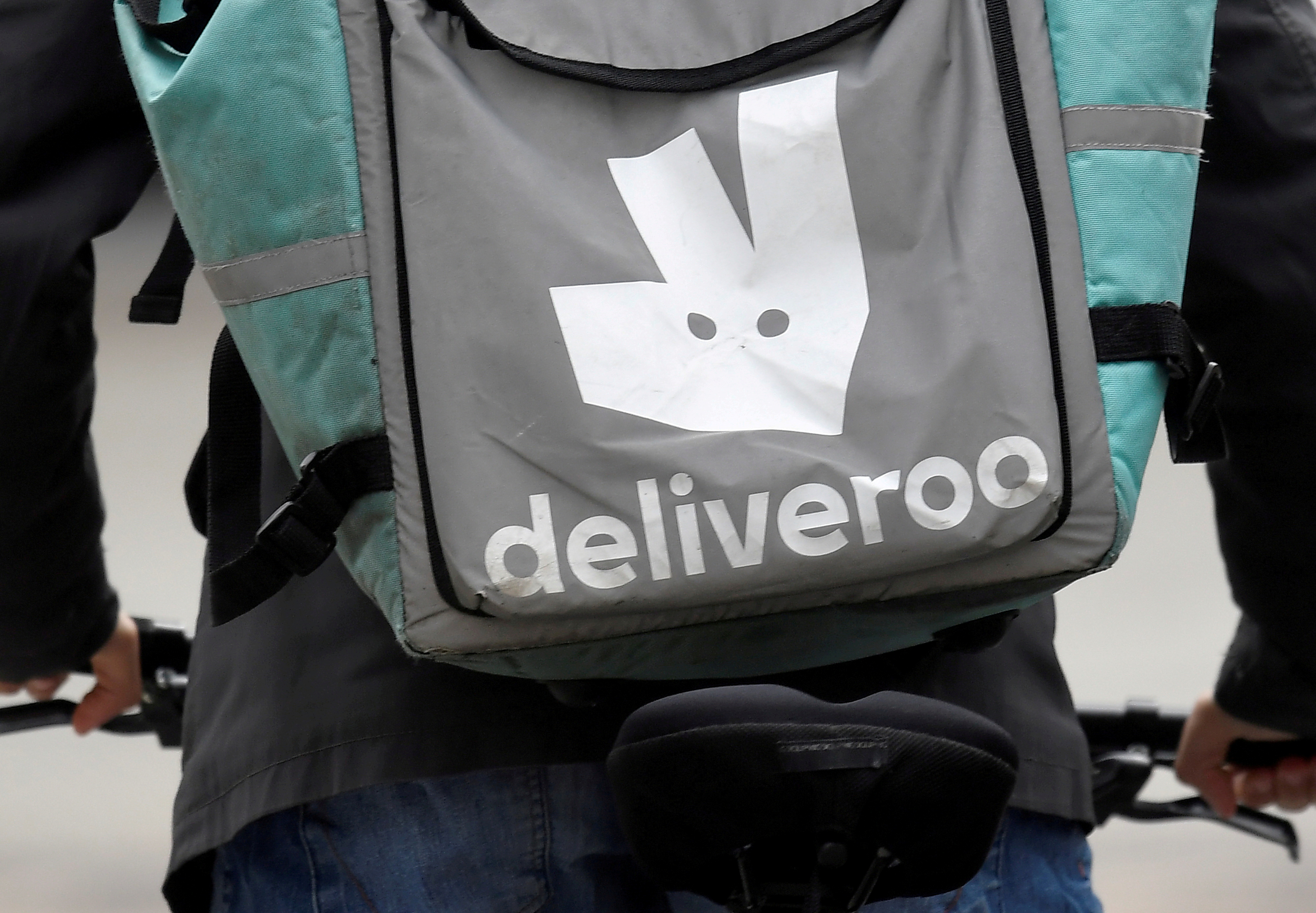Uber, Deliveroo could be hit by draft EU rules for gig workers
[1/2]A Deliveroo delivery rider cycles in London, Britain, March 31, 2021. REUTERS/Toby Melville/File Photo Purchase Licensing Rights
BRUSSELS, Dec 7 (Reuters) - Uber (UBER.N), Deliveroo (ROO.L) and other online platform companies may have to reclassify some of their workers as employees under draft European Union rules meant to boost their social rights, according to an EU document seen by Reuters.
The proposal from the European Commission, the first in the world, comes as countries and courts around Europe try to address shortcomings in the gig economy, with judges in most cases backing the rights of workers to labour rights available to those working in brick-and-mortar shops.
The document estimates some 15 companies and between 1.7 million to 4.1 million workers out of 28 million could be affected by the rules, which set out five criteria for determining employees.
Gig economy workers could be classifed as employees if online platforms determine their pay, set conduct and appearance standards, supervise the performance of work through electronic means, restrict their ability to choose their working hours or tasks, and prevent them from working for third parties.
A platform company is considered an employer if it meets two of the criteria, the paper said.
The rules will also require ride-hailing, food delivery apps and other companies to provide information to employees on how their algorithms are used to monitor and evaluate them as well as for allocation of tasks and setting of fees. Employees can ask for compensation for breaches.
The rules place the burden on online platforms to provide evidence that these do not apply to them. They can also challenge their reclassification either via an administrative process or in a court.
EU countries could see an annual boost of between 1.6 billion and 4 billion euros in tax contributions from reclassified employees, the paper said.
The draft rules will need to be thrashed out with EU member states and EU lawmakers before they can be adopted, with the Commission estimating a 2025 time frame.
Sanctions for non-compliance, which can include fines, will be set by EU countries while national authorities which fail to put in place the necessary measures can face legal action by the Commission.
In a series of setbacks for online platforms, Britain's Supreme Court ruled in February that Uber drivers are entitled to workers' rights, such as the minimum wage, while a Spanish court said last year riders for Barcelona-based food delivery app Glovo were employees, not freelancers. read more
Trade unions say the gig economy is exploitative while companies say the business model gives workers flexibility.
Estonian ride-sharing and food delivery startup Bolt said the draft rules could result in job losses. "This will lead to one out of two drivers losing their job, which is close to at least 140,000 people across the EU," said Aurelien Pozzana, head of Public Policy Western Europe at Bolt.
Deliveroo voiced the same concerns. "These proposals will increase uncertainty and will be better for lawyers than self-employed platform workers," a spokesperson said.
Sign up here.
Reporting by Foo Yun Chee Editing by Mark Heinrich
Our Standards: The Thomson Reuters Trust Principles.

